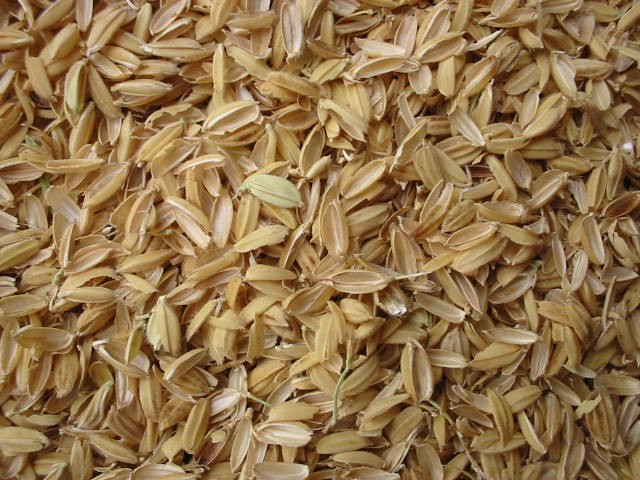To leverage successful technologies and best practices from the region through (1) peer-to-peer exchanges and (2) a capitalisation conference. The conference will bring together all the supply chain stakeholders, including rice husk producers, garment factory owners and international brands who can play a role in adapting their purchasing specifications according to environmental considerations.
 The current total consumption of firewood by the Cambodian garment sector is estimated to be about 302,000 tonnes per year. Currently, most of the wood comes from Economic Land Concessions clearing, which has rendered the price of wood artificially low. However, this land conversion process is gradually coming to an end. Consequently, wood will increasingly be sourced either from natural forests (illegal collection) or from energy plantations (mainly rubber or cashew trees). It is critical to find alternative biomass fuels to prevent wood from being illegally collected from natural forests. One promising alternative could be the use of rice husk briquettes (RHB), as Cambodia produces around 1.5 million tonnes of rice husk each year. In Vietnam, for instance, rice husk is already widely used as an alternative fuel source. Many rice millers produce RHB and sell them to the manufacturing industry.
This knowledge exchange aims to leverage successful technologies and best practices from the region through (1) peer-to-peer exchanges and (2) a capitalisation conference. The conference will bring together all the supply chain stakeholders, including rice husk producers, garment factory owners and international brands who can play a role in adapting their purchasing specifications according to environmental considerations.
Over the course of 9 months, this SEPS exchange will organise two study tours to Vietnam and one conference.
The current total consumption of firewood by the Cambodian garment sector is estimated to be about 302,000 tonnes per year. Currently, most of the wood comes from Economic Land Concessions clearing, which has rendered the price of wood artificially low. However, this land conversion process is gradually coming to an end. Consequently, wood will increasingly be sourced either from natural forests (illegal collection) or from energy plantations (mainly rubber or cashew trees). It is critical to find alternative biomass fuels to prevent wood from being illegally collected from natural forests. One promising alternative could be the use of rice husk briquettes (RHB), as Cambodia produces around 1.5 million tonnes of rice husk each year. In Vietnam, for instance, rice husk is already widely used as an alternative fuel source. Many rice millers produce RHB and sell them to the manufacturing industry.
This knowledge exchange aims to leverage successful technologies and best practices from the region through (1) peer-to-peer exchanges and (2) a capitalisation conference. The conference will bring together all the supply chain stakeholders, including rice husk producers, garment factory owners and international brands who can play a role in adapting their purchasing specifications according to environmental considerations.
Over the course of 9 months, this SEPS exchange will organise two study tours to Vietnam and one conference.
- One study tour will enable 10 Cambodian rice millers to visit Vietnam to benchmark already proven rice husk processing technologies; the study tour will include technical training on rice husk processing technologies facilitated by local rice millers engaged in the project;
- The other study tour will provide 10 garment factory owners with knowledge on renewable energy boiler equipment, and replicate successful technologies in Cambodia;
- Finally, the capitalisation conference will bring together rice millers, factory owners, international brands and public authorities to raise awareness about the environmental footprint of the manufacturing industry and introduce alternative options for a sectoral switch to sustainable fuel consumption in the Cambodian garment industry.
Projects with same technology
Biogas Generation through Biomass Production in a "Smart School" in the Lower Northern Region of Thailand
The aim of this project is to use food and agricultural waste, as well as animal dung, to generate biogas energy for producing/cooking school lunches at seven schools in Thailand.
Replacing firewood with biogas in Nakuru high schools, Kenya
To replace firewood with biogas technology for providing clean and sustainable energy at Kenyan Boarding Schools
Projects in same country
Exchange: Demand-Side Solutions to Financing Sustainable Energy in Southeast Asia
Building on the 2017 event, “Financing Renewable Energy in Southeast Asia”, Nexus aims to organise an even more valuable knowledge exchange and further support capacity building among sustainable and renewable energy entrepreneurs.
Exchange: Affordable Finance for Sustainable Energy: Sharing Successful Models in South East Asia
This knowledge exchange activity aims to explore and share successful financial models, identifying the specific factors that make different models relevant and replicable in their context.